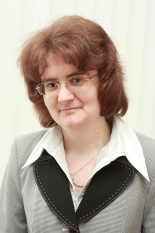 |
Coling 2008
Manchester, 18-22 August, 2008The 22nd International Conference on Computational Linguistics
|
Home
·
Programme
·
Info for presenters
·
Workshops
·
Tutorials
·
Registration
·
Venue
·
Accommodation
·
Sponsorship
·
Archive
·
ICCL
Tutorial T1
Educational Natural Language Processing
Sunday August 17, 9.30 - 1.00
Outline·
Structure·
Instructors
Outline
Typical Web 2.0 tools such as wikis, blogs, and podcasts have recently entered the classroom and foster interactions between learners and tutors, within the new eLearning 2.0 paradigm. As a result, eLearning 2.0 makes large amounts of eLearning discourse available for NLP within the field of research that we call "Educational Natural Language Processing" (e-NLP).
Research on e-NLP has existed for a long time and has focused on e.g.
automatic dialogue-based tutoring systems (Litman & Forbes-Riley, 2006), or essay scoring (Attali & Burstein, 2006). Moreover, several workshops on "Building Educational Applications Using NLP" and related topics have already taken place at major NLP conferences, such as HLT-NAACL 2003, COLING 2004, ACL 2005 and ACL 2008. Educational applications are particularly challenging for NLP since they require an adaptation and practical application of NLP techniques to various types of discourse, e.g. tutoring dialogues which are different from typical task-oriented spoken dialogue systems. Moreover, educational applications place strong requirements on NLP systems, which have to be robust yet accurate. Therefore, this is an important application domain and a source of innovation for NLP as a field, as shown by recent works from Feng et al. (2006), Kim et al. (2006), Malioutov & Barzilay (2006), Mihalcea & Csomai (2007), to name just a few.
In this tutorial, we will review a variety of uses of NLP in the educational domain and point to emerging trends which call for new types of applications. The tutorial will be relevant to a broad audience of NLP researchers interested in applying NLP techniques to new challenging domains, such as eLearning.
Structure
The tutorial will be structured as follows:
- Introduction: eLearning and NLP
- Automatic generation of exercises
- Fill-in-the-blank questions
- Multiple-choice questions
- Word formation questions
- Error correction questions
- Open questions
- Assessment of learner generated discourse
- Quality assessment
- Automatic essay grading
- Plagiarism detection
- Reading and writing assistance
- Grammar and spell checking
- Text simplification
- Use of dictionaries and lexical-semantic resources
- Tutoring systems
- NLP in tutoring systems
- Analysis of learning processes
- Web 2.0 and computer supported collaborative learning:
- Blogs
- Wikis
- CALL 2.0 (Web 2.0 and language learning)
- Example e-NLP application: electronic career guidance
Instructors
Iryna Gurevych is head of the Ubiquitous Knowledge Processing (UKP) Lab at the University of Darmstadt. Her research in recent years has focused on the application of lexical semantic knowledge in such areas of NLP as spoken dialogue summarization, information retrieval, and question answering for educational purposes, e.g. electronic career guidance, or question answering based on question-answer repositories in Web 2.0 applied to e-Learning. Her areas of expertise include algorithms for computational lexical semantics and user-generated discourse processing. She guided the development of the high-performance Java-based Wikipedia and Wiktionary APIs as well as projects in collaborative annotation, information filtering and sentiment analysis for eLearning.
Delphine Bernhard is a senior researcher in the Ubiquitous Knowledge Processing Lab at the University of Darmstadt. She obtained her PhD in
2006 from the Université de Grenoble I, where she worked on terminology extraction from domain specific texts and unsupervised morphological analysis. Her current work focuses on the improvement of question answering to meet the specific needs of learners. Her further research projects include NLP for user generated discourse and quality assessment of social media contents.
BACK to Tutorials main page



